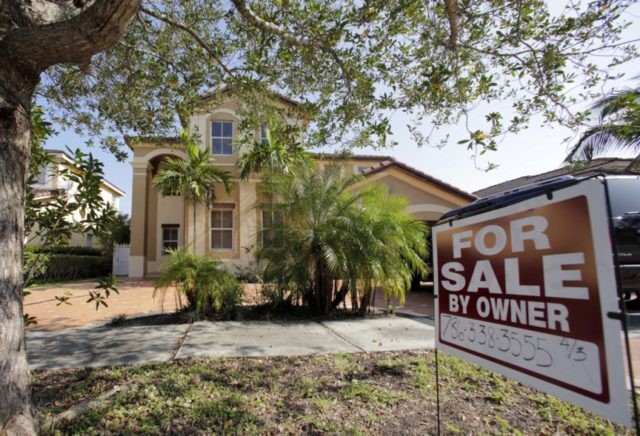A sizzling residential real estate market fueled by incoming Californians, low supply, high demand, flat salaries, and local property taxes are pricing people out of homeownership in Austin.
Home prices have jumped faster in Austin than anywhere else the country, according to KVUE. They profiled a young Austin couple, Joi and Fabio Torres, who thought they did everything right to become homeowners, only the dream of homeownership remains elusive.
“I’d gone to college, got my masters, we saved money, we had extra jobs. I thought we’ll just save a down payment and we’ll buy a house in Austin like we intended,” said Joi Torres who acknowledged that they had to choose between buying a home or having a baby. They had a baby. Her husband Fabio, a home remodeler, called Austin home prices ridiculous. “There were houses that were gutted that they wanted $200,000 for,” he said.
The Texas A&M Real Estate Center examined the Austin local market area (LMA) over five years. In January 2011, the Austin-Georgetown-Round Rock area median home prices were $199,700. By January 2015, that median hovered at $287,000. At the end of 2016, university real estate analysts found the home mid-price point at $332,000.
The real estate analysts also charted home prices in the larger Austin-Round Rock Metropolitan Statistical Area (MSA), reflecting parallel price spikes beginning in 2014. By June 2016, the median was $290,000 although the market cooled slightly in December, lowering the median to $287,000.
Breitbart Texas reported Californians make up the largest number of Texas transplants based on figures from the Texas Association of Realtors’ 2017 Texas Relocation Report. The study accounted for a net gain of 16,890 new Austinites from other U.S. states; of them, 2,551 came from the Los Angeles metro area. Culture Map Austin estimated roughly 15,000 Californians transplanted to the Austin metro area between 2010-14. The Austin-Round Rock (MSA) crossed the 2 million population mark by 2015.
Experts say this influx drove up housing prices since Californians, who often cashed out on selling homes in over-inflated real estate markets, then paid outright for houses in the high-tech hub. Often, locals cannot compete. However, Brandy Guthrie, president of the Austin Board of Realtors and a lifelong Austin resident, also attributes stagnant salaries and flat pay raises to the problem.
“We do need to get proactive about wages and salaries if we want to continue to have the community we have here in Austin,” she told KVUE, which noted over the past quarter-century, household incomes increased 97 percent while median home prices leaped 290 percent.
This problem extends beyond Austin. Breitbart Texas reported on the off-kilter affordability equation in the 2015 Dallas-Fort Worth housing market. Dallasites could not keep up with soaring home prices impacted by transplants, insufficient new builds, and low inventory for sale.
KVUE suggested if salaries ran commensurate with Austin’s median home prices, a typical Austin family would earn around $153,000 per year. Figures from the Austin Neighborhood Housing and Development Office illustrate the gap, recording $77,800 as the actual 2016 Austin-Round Rock median annual four-person household family income.
Property appraisal values also exacerbate the housing crunch, often pushing Austinites outside city limits. KVUE found the five fastest-selling zip codes in the surrounding suburbs.
Austin Mayor Steve Adler worried Austin would become like San Francisco “where the average house price is $1,150,000 and only the well-to-do and those being subsidized can live. Nothing in-between. No middle class, no working class, no creatives and artists,” he said in a recent State of the City speech.
San Francisco ranked ninth on a list of least affordable housing markets in the world; Austin tied for 216th, according to Culture Map Austin.
Adler noted the current median price of an Austin home is $284,000 and believes the Austin market is cooling off, for now. “Experts tell us that 95,000 people are going to move to Austin by 2020,” he added.
The mayor also blamed “convoluted” and “confusing” land development codes that impede business development, plus a lack of tools to manage growth. Adler believes Austin must build at least 135,000 new housing units over the next 10 years to stabilize these prices and bridge the supply and demand gap. Low inventory and high demand can trigger bidding wars, raising home prices as well.
On Friday, U-Haul named Texas the number one U.S. growth state for 2016. Texas arrivals outpaced departures 50.8 to 49.2 percent largely because of relocations to Austin, the number two U.S. growth city in the 50,000-plus population category.
Follow Merrill Hope, a member of the original Breitbart Texas team, on Twitter.

COMMENTS
Please let us know if you're having issues with commenting.